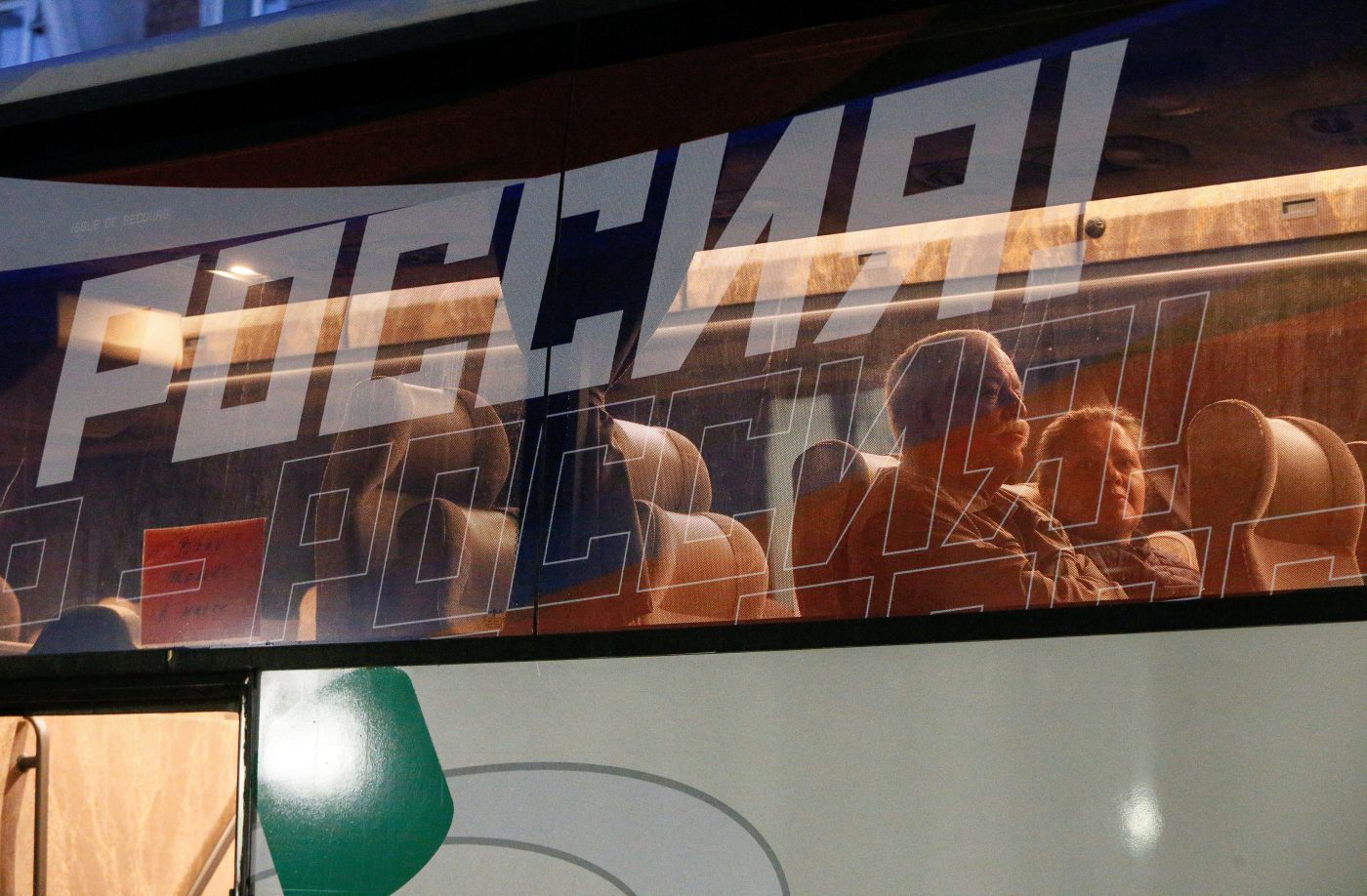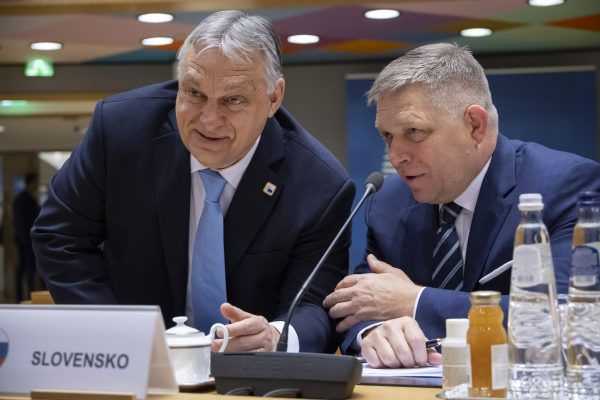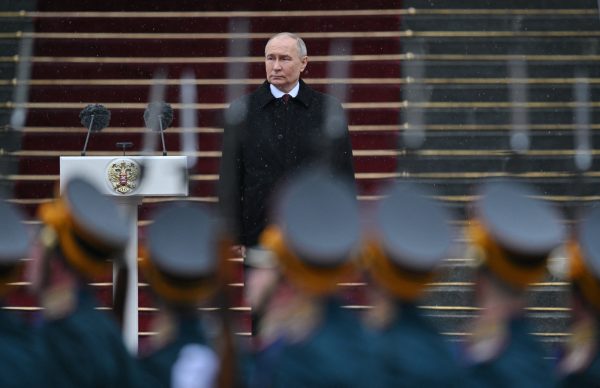President Vladimir Putin signed legislation in May to allow elections in areas under martial law, triggering votes on September 10 in the occupied territories of Donetsk, Luhansk, Kherson, and Zaporizhzhia.
The occupation authorities started preparations at the same time, holding primaries to choose candidates for the ruling United Russia party. Around 207,000 people were said to have taken part in these preliminary votes in Donetsk Oblast, and 157,000 in Luhansk Oblast, according to the Russian-appointed governors of the self-proclaimed Donetsk People’s Republic (DPR) and Luhansk People’s Republic (LPR.)
Local collaborators were among the winners, including Artem Zhoga, commander of Donetsk’s illegal Sparta Battalion, which is sanctioned by the US and the European Union (EU.) The coordinators of projects such as “Russian Village” and “New School,” which aim to Russify the occupied territories, also won through to the next round.
In the occupied areas of the Kherson region, about 18,000 people took part in the preliminary elections, according to the secretaries of regional branches of United Russia. In the occupied part of Zaporizhzhia Oblast, more than 65,000 residents were said to have voted in person.
Local entrepreneurs, as well as Russia’s appointed governors of the occupied areas, were among other winners in the primaries. Collaborators from Crimea, which helped organize the illegal referendum on the peninsula and the seizure of Ukrainian administrative buildings there, also stood for election in Zaporizhzhia.
“They held United Russia primaries in the Kherson region, and they allowed people who refused Russian passports to participate,” Yurii Sobolevskyi, First Deputy Head of Ukraine’s Kherson Oblast Council, told CEPA. “In other words, people who do not have Russian citizenship took part in primaries for a Russian political party on Ukrainian territory.”
The September elections are scheduled to be run on a proportional system in which people vote for party lists. Mandates will be given to candidates of parties with more than 5% support, with 90 deputies elected to the parliament of the self-proclaimed DPR and 50 in the self-proclaimed LPR. In the occupied part of Zaporizhzhia Oblast, 40 deputies will enter the legislative assembly, while in the occupied area of Kherson Oblast, where the Russian occupiers haven’t created a legislative body, 36 deputies will join a regional duma.
The Kremlin is systematically following the occupation textbook it developed in Crimea and in the self-proclaimed LPR and DPR. A territory is first conquered, then the occupiers hold referendums to indicate the enthusiasm of the electorate, and then so-called elections. The main goal of the rigged votes is to legitimize the occupation of the territories as a stepping stone to integrating occupied land into the legal and political borders of Russia.
In their speeches and public messages, the occupying forces emphasize that they have held elections and that the victory of pro-Russia parties was the choice of the residents.
The second goal is to play a game of “the skilled executive.” Russian forces create an image of active political life in the occupied territories to help build the idea that everything is going according to plan. Regardless of the circumstances and process for the elections, the Kremlin wants to create an illusion of normality and democracy while showing confidence it will continue to control the region for a long time to come.
The votes will also help to feed Russia’s propaganda machine beyond the occupied territories, with material for state television and bloggers as well as internal and international consumers.
By forcing people to take part in the sham elections, Russia wants to implicate residents in the occupation and make them loyal to its forces. Under Ukrainian law, election organizers in occupied areas can be held criminally liable and face as long as 10 years in jail along with restrictions on their activities once released.
International law is clear that the upcoming “elections” are illegitimate. It’s equally clear that Ukraine and the world won’t accept the results.

Previous elections have been exposed as sham votes, sometimes involving outright criminal methods. For example, during the sham elections in the occupied territories of Donetsk and Luhansk oblasts in 2018, bribery and coercion of voters, including administrative coercion (companies were told to ensure a certain number of votes under threat of bureaucratic sanction), were commonplace.
During the referendums in the occupied territories in 2022 “women would walk around the houses with a portable box for ballots,” Vladyslav Moroko, the head of the Department of Culture and information policy of Zaporizhzhia Oblast State Administration told Hromadske. “They were accompanied by five armed soldiers. People ticked ‘yes’ because the machine guns were aimed at them. Those who tried to protest or oppose were taken away.”
It may be that the Kremlin’s plans are ruined by the tactical gains of Ukraine’s armed forces. There has already been an indication that the Russian Central Electoral Commission may postpone the “elections” in the occupied territories if Moscow’s position worsens there. Whether they are held may provide a useful marker for how the Kremlin thinks its war is going.
Elina Beketova is a Democracy Fellow at the Center for European Policy Analysis (CEPA), focusing on the temporarily occupied territories of Ukraine. She worked as a journalist, editor, and TV anchor for various news stations in Kharkiv and Kyiv, and currently contributes to the translator’s team of Ukrainska Pravda, the biggest Ukrainian online newspaper.
Europe’s Edge is CEPA’s online journal covering critical topics on the foreign policy docket across Europe and North America. All opinions are those of the author and do not necessarily represent the position or views of the institutions they represent or the Center for European Policy Analysis.





